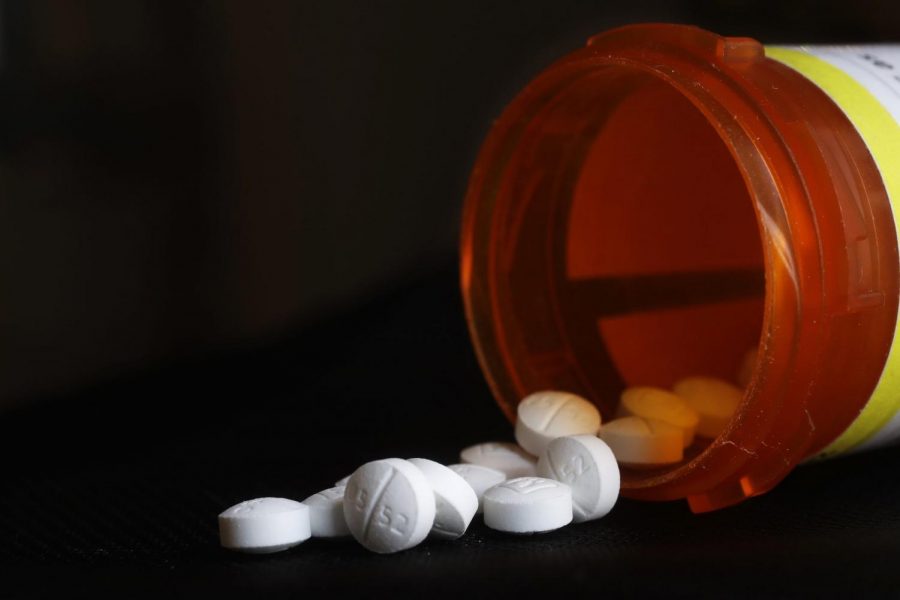American Cancer Society reports drop in cancer deaths
2020 began with a report from The American Cancer Society announcing the steady decline of cancer in the U.S.
The decline in deaths from lung cancer marked the largest drop, followed by the three other common cancer types of colorectal, breast and prostate. The decline in cancer rates has been steady over the past 26 years, according to the report.
After the report was published, President Donald Trump tweeted about the declining rate and seemed to claim responsibility for it.
“U.S. cancer death rate lowest in recorded history! A lot of good news coming out of this administration,” tweeted Trump.
In a direct response to the tweets, CEO Gary M. Reedy of the American Cancer Society told CNN that the Trump administration is not responsible for findings in the report.
“The mortality trends reflected in our current report, including the largest drop in overall cancer mortality ever recorded from 2016 to 2017, reflect prevention, early detection and treatment advances that occurred in prior years,” he said.
The administration, however, has the opportunity to impact future declines in cancer, Reedy told CNN.
“They can impact future declines in both cancer incidence and mortality by increasing access to comprehensive health care, supporting robust and sustained increases in federal funding for cancer research and passing and implementing evidence-based tobacco control policies,” Reedy said.
Fabiola Horta, a DePaul University health science major, said she wishes the Trump administration would apply more money toward cancer research.
“I would like to see the Trump administration allocate more funds to the Department of Public Health,” she said. “One of the major responsibilities of this department is the surveillance and lowering of the disparities of health opportunities in low income and minority communities.”
The overall death rate between 2008 and 2017 dropped an average of 1.5 percent per year, resulting in about 2.9 million deaths avoided. However, the report estimates about 1.8 million new cases and 600,000 cancer-related deaths in the U.S. this year. This translates to about 4,950 new cases and 1,600 deaths each day.
Advancements in treatment for some types of cancer have impacted the rates. Immunotherapy drugs for melanoma skin cancer have resulted in a steep decline of deaths, especially for those age 65 or older. Improvements in targeted therapies have shown progress for leukemia and lymphoma patients, greatly expanding the life expectancy.
Increased preventative measures among individuals have also contributed to the steady decline in the U.S. over the last decade.
Elbert Huang, a professor of medicine at the University of Chicago, said living a healthy lifestyle can lower the risk of cancer.
“A healthy lifestyle includes a high vegetable diet and no use of tobacco and alcohol,” Huang said. “It’s important to follow routine cancer screenings for colon cancer and breast cancer. Staying up to date with vaccinations also help prevent cancer causing viruses, such as the myeloma virus.”
While increases in awareness and technological advancements have contributed to these preventative measures, Huang said even more can be done.
“There is a correlation between obesity and cancer,” Huang said. “The American food industry is partly to blame for the rising obesity rates.”
Horta said she takes the preventive action of living a healthier lifestyle to lower her own risk of developing cancer later in life.
“I try to prevent cancer by being active,” Horta said. “I know that keeping your body healthy and moving promotes the regeneration of cells. I also always try to wear sunscreen during the summer to prevent skin cancer.”
Despite the progress, the newest –and largest – threat to the declining cancer rates is the phenomenon of vaping among teens and young adults. The American Cancer Society cites the lowered use of tobacco as one of the main contributors to the lowered rates. Vaping, however, seems to threaten this trend in an unpredictable way.
Advocate Health Care neurosurgeon Kenji Muro said it is too early to tell the extent of the impact vaping can have on the declining cancer rates reported by the American Cancer Society.
“It takes some time period after exposure to see cancer form, which also speaks to the difficulty of establishing a causal relationship versus correlation,” Muro said. “So, as any other studied risk factor, there are a few possibilities: no impact on cancer rates, a decrease in general cancer rates, or an increase in general cancer rates.”







